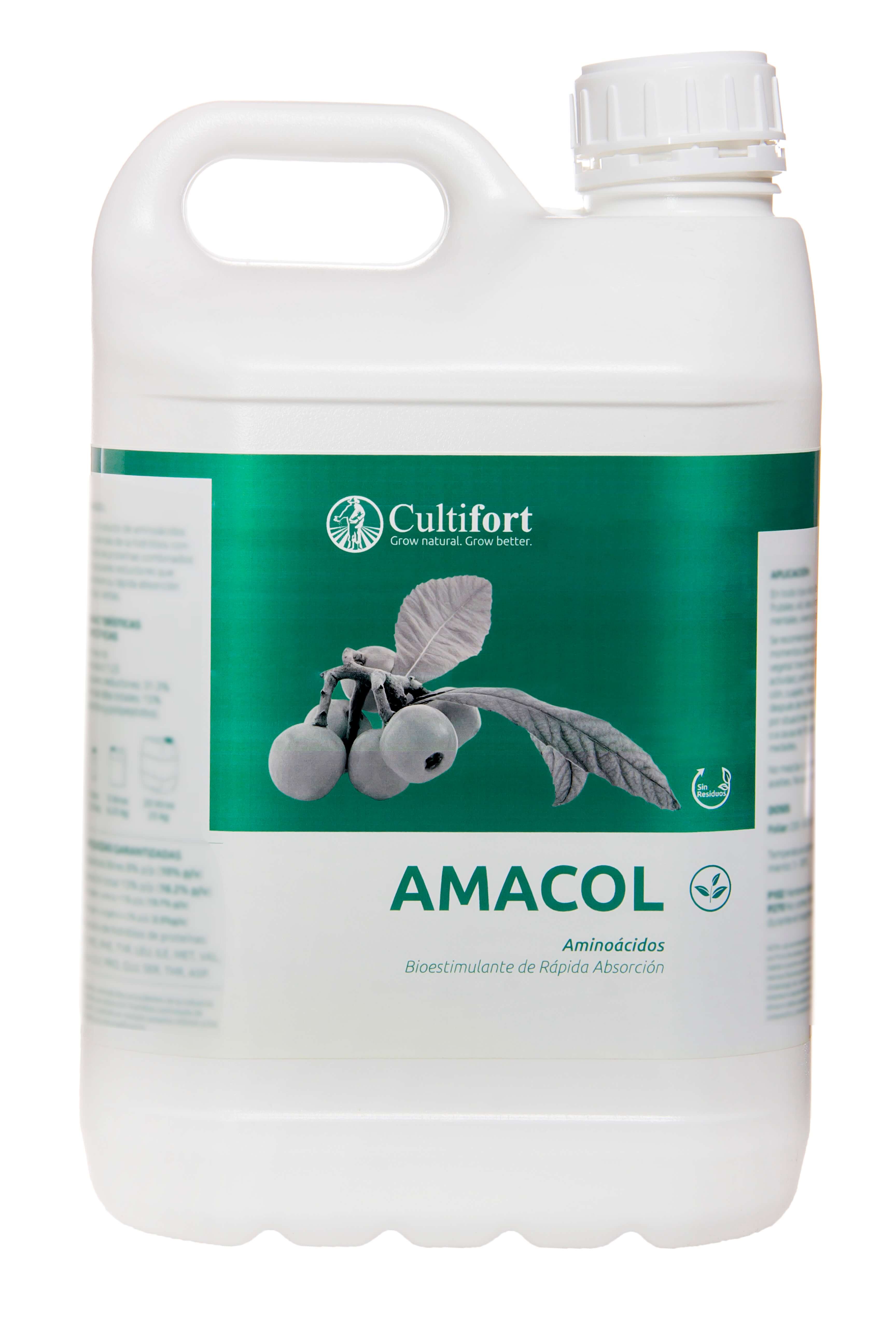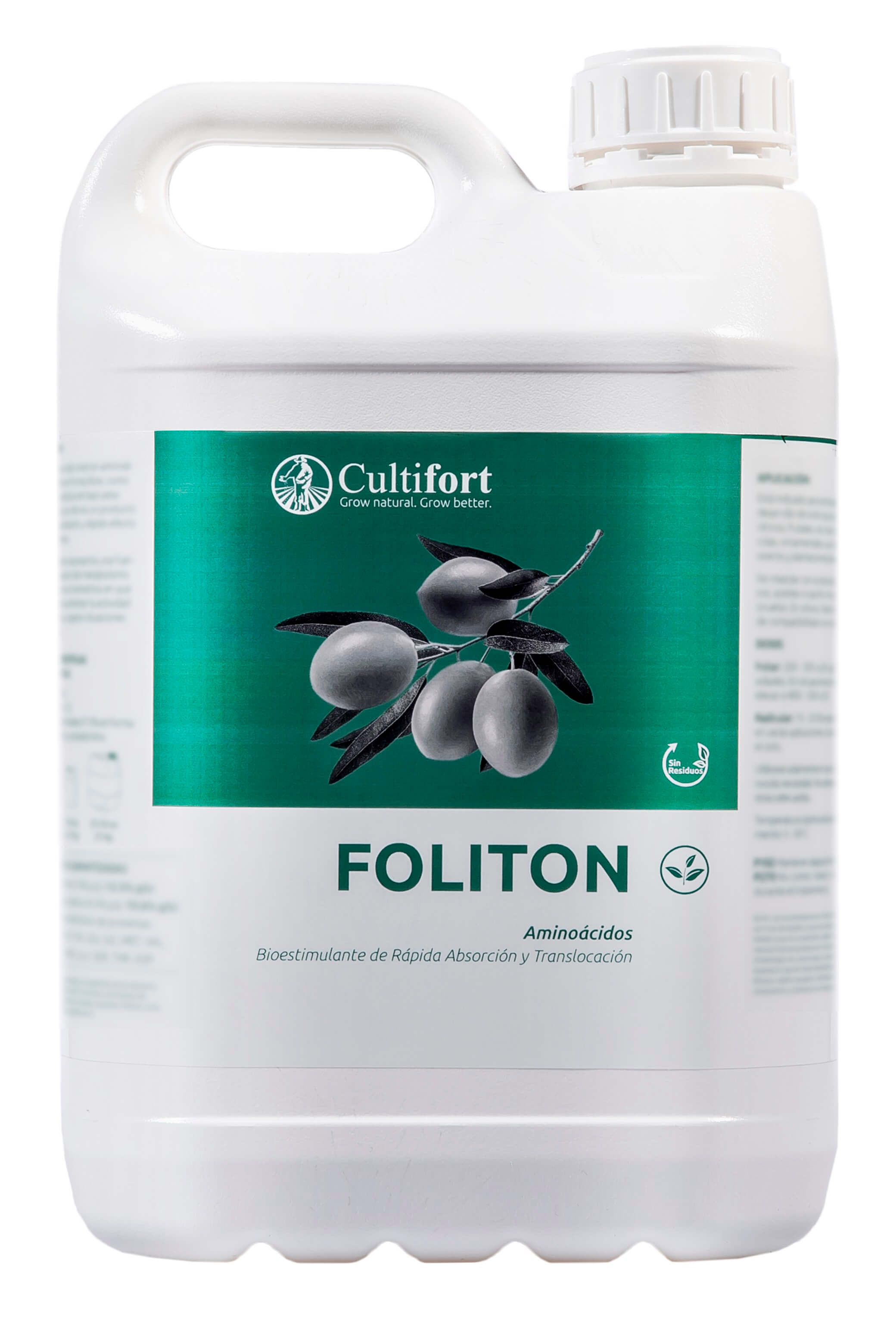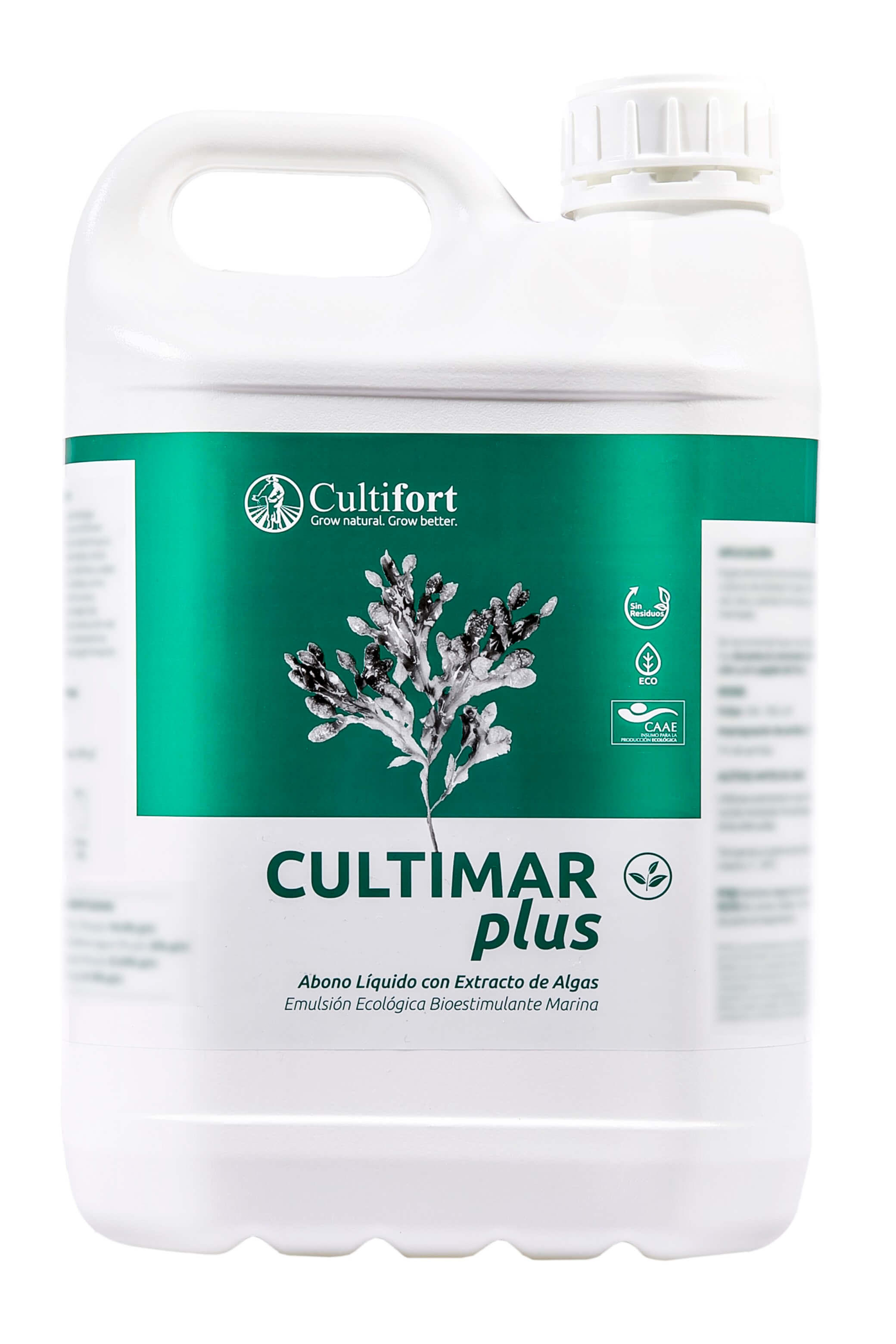The use of biostimulants in agriculture has direct benefits in the treated crop. They serve to better manage extreme situations and achieve the excellence of the crop. They are increasingly valued and used to protect and make profitable crops in situations of stress or to help the crop at critical moments of its development. In this article we focus on the key biostimulants of Cultifort for its application in olive groves
In addition to the contribution of fertilizers to achieve a balanced nutrition, the olive has other needs complementary and equally important. This is where biostimulants come into play. Its effect has a positive result on the yield and quality of the harvest as well as on the “resilience” of the tree subjected to different types of abiotic stress, providing the capacity for resistance and recovery to extreme situations. In addition, in certain phenological phases such as flowering, fruit set, fattening of the olive or its ripening, the olive tree can have a significant increase in needs. It is, in these states, when it is necessary to act to cover the metabolic needs of the plant with the help of biostimulants.
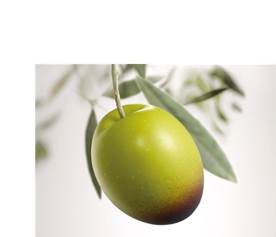
Depending on the phenological phase in which the olive tree is located, the biostimulant must be the companion of another nutritional agent. At the beginning of the vegetative activity, the biostimulant should be the complement of a nitrogen fertilizer. In the prefloration period, it should be used with a higher phosphorus formulation. And in phase of fattening or maturation of the olive, the most important nutrient will be potassium, also accompanied by a suitable biostimulant.
For Victoria Cadahía, technical director of the Spanish Association of Manufacturers of Agronutrients (AEFA), biostimulants “are products with added value, which come from research and innovation, so they have a price somewhat higher than fertilizers but that the farmer will see profitable in his harvest “. Therefore, the use of biostimulants will never be a cost to the farmer, but rather an investment.
THE ALGAE AND THE AMINO ACIDS
The algae have enzymes that cause or activate reversible catalytic enzymatic hydrolysis reactions, which the enzymes of living beings, including roots, are not able to perform in a noticeable way. In addition to biostimulating action, they have fertilizing properties, because they release nitrogen slowly and are also rich in microelements, vitamins and plant phytohormones. Some even act at the level of induction in the development of natural defense mechanisms and immune system of plants. The biodiversity of the species of algae, together with the chemical diversity found in each species, constitutes a practically unlimited resource that can be used favorably through biotechnology, in order to obtain products for agriculture, being, at its once again, another source of sustainable protein wealth.
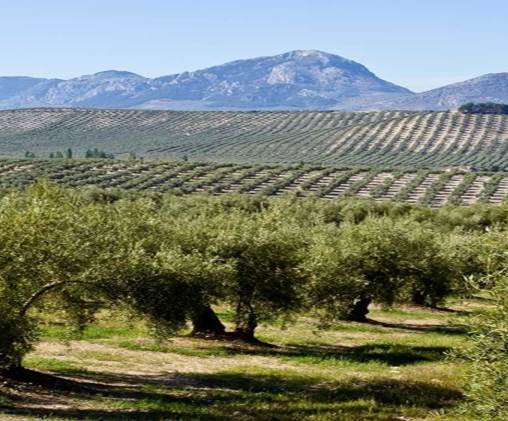
The amino acids, which suppose an energetic stimulation in the moments of greater demand of the crop, promote the synthesis of proteins and intervene in concrete processes to favor the synthesis of phytohormones and chlorophyll, they act causing an additional increase of the photosynthesis, they are an osmotic agent of the cellular cytoplasm that helps to open stomata and regulates the water balance of the plant, strengthening cell walls and helping to rebuild plant tissues, promote budding and vegetative development, increase sap circulation and reduce the time required by the plant for the healing of plant tissues, due to its high capacity as a cytological regenerator.
From Cultifort, we want to advance a series of recommendations based on the experience of our technicians, offering our clients a wide range of biostimulants adapted to the different situations or scenarios that may arise in the different productive systems of the olive grove (traditional, intensive and high density), both ecological and conventional.
AMACOL is a biostimulant based on L-amino acids designed to stimulate all stages of plant development, whether post-transplant adaptation, vegetative development, flowering, fruit set, veraison or maturation of the olive. In addition, it is also a very effective product to overcome stress situations of all kinds (hail, frost, drought, phytotoxicity, etc.).
Applied via radicular, beneficially influences in the improvement of physical-chemical and biological parameters of the soil, favoring the development of beneficial microorganisms, improving its structure, water retention capacity, clay-humic complex, capacity of cation exchange and mobility of nutrients.
It is a biostimulant that is absorbed, even at low temperatures, regardless of the chlorophyll function, going directly to the elaborated sap, so it has a high translocation. Used via foliar, potentiates the action of phytosanitary ware.
The reducing sugars present in its composition allow the plant to form proteins more quickly and with less energy expenditure. This energy saving favors a better balance between photosynthesis and respiration, which helps the olive tree get out more quickly from stress situations, in favor of more productive crops.
Its use is recommended not only in adult olive groves, but also in nurseries and young plantations.
FOLITON is a biostimulant with a high content of proteinogénic L-amino acids, both free and combined in the form of peptides and polypeptides, which allow the olive tree to save energy in the formation of proteins, especially in situations of stress or when there are high nutritional requirements. It is a liquid formulation of rapid assimilation and translocation in the plant. Its application represents a strong stimulation of plant metabolism at times when it is required to increase vegetative activity.
The joint action of the components of its formulation favors the synthesis of proteins and carbohydrates, promote the onset of the physiological activity of the plant, stimulate the formation of leaves and flowers, improve the quality of the fruits and homogenize their caliber and maturation.
CULTIMAR PLUS is an emulsion based on a complex of algae that provides easily assimilable active ingredients (plant phytohormones, essential oils, sugars, proteins, mineral salts and vitamins). It contributes to improve vegetative development and production, with the particularity of delaying the senescence of the fruits and helping to overcome stress situations.
Its composition makes it a highly versatile bioestimulant. Thanks to the magnesium, sulfur and boron of its formulation, it is ideal to improve flowering and fruits setting, but it is also suitable to stimulate the growth at the beginning of the vegetative activity or to facilitate the fattening of the olive, its maturation and the increase in fat yield.
In short, the use of biostimulants will help to protect the olive tree against different stress situations, promote vegetative development, improve fruit set and increase the quality of the crops.


